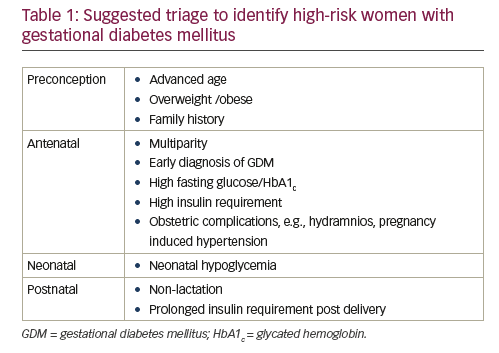Contents
What is gestational diabetes?
We talk about diabetes when the blood sugar level is higher than normal. This disorder sometimes appears for the first time during pregnancy. It’s the Gestational Diabetes. The World Health Organization (WHO) defines it as “a abnormal carbohydrate tolerance which results in hyperglycemia “. It is usually detected after the second trimester and goes away naturally during the postpartum period. Small precision, on the occasion of pregnancy, we can also discover type 2 diabetes, pre-existing. This, unfortunately, persists after childbirth.
Namely
Some women are at greater risk of developing gestational diabetes than others.
How to screen for gestational diabetes?
It was chosen to make in France a targeted screening in at-risk mothers-to-be.
Are concerned:
- women over 35,
- those with a BMI greater than or equal to 25,
- those with a family history of 1st degree diabetes,
- women who had gestational diabetes during a previous pregnancy,
- and those who have had a child whose birth weight is over 4 kg (macrosomia).
Note: you just need to have only one of these criteria to be considered “at risk”. In this case, monitoring of blood sugar (blood sugar level) is reinforced.
It is now advisable to screen pregnant women at the first consultation by performing a fasting blood glucose test (blood test). Goal : don’t ignore type 2 diabetes. All women who have a level below 0,92 grams per liter are considered normal.
Another examination is then scheduled between the 24th and 28th week of pregnancy. This is a blood sugar test performed on an empty stomach, 1 then 2 hours after taking 75 g glucose. This test is called “Orally Induced Hyperglycemia” (OGTT). You have gestational diabetes if you exceed 0,92 g / l on an empty stomach, 1,80 g / l at 1 hour and 1,53 g / l at 2 hours. Only one of these values makes the diagnosis.
Gestational diabetes: what are the risks for the baby and the mother?
The future mother who presents a Gestational Diabetes is closely monitored during pregnancy. This pathology can indeed cause an increased risk of certain complications:
- A risk of preeclampsia (high blood pressure during pregnancy)
- The increased risk of miscarriages, especially if it is type 2 diabetes
- Excessive weight of the baby, which can cause complications during childbirth, resulting in a greater number of cesarean sections
- A ” fetal distress »At the end of pregnancy due to poor oxygenation of the baby
- A risk of respiratory distress if diabetes started early in pregnancy and the delivery was very premature
- A hypoglycemia during the baby’s first days, which can lead to absences or even loss of consciousness and seizures. It is directly related to the mother’s blood sugar levels during the ten days leading up to childbirth.
In video: Sugars in the urine: what to do?
What are the treatments for gestational diabetes?
- Consult a dietitian as soon as gestational diabetes is diagnosed. He will offer you a adapted diet : elimination of rapid sugars, distribution of starches over the three meals. He may, depending on the biological assessments, have recourse to insulin injections.
- Monitor your blood sugar at the rate recommended by your doctor every day. Tell him if it is greater than 0,95 g / l before meals and 1,20 g / l after meals.
- Step on the scale once a week! A regular weighing allows your doctor to adjust your treatment and better help you control your weight gain.
- Exercise! Doctors advise walking, swimming, stretching or a special pregnancy gymnastics, 30 min 3 to 5 times a week.
Rest assured, if you are well followed, that you follow the diet, your pregnancy will go very well. In gestational diabetes, birth can take place in all types of maternity (except prematurity, serious malformation or major abnormality of fetal growth). And good news: Baby won’t necessarily have diabetes. This risk does not seem to be linked to the blood sugar level of the mother-to-be but to the transmission of part of her genetic capital. On your side, you will be able to eat normally again the day after giving birth. The s of your blood sugar levels will be continued in the days following childbirth and a few weeks after. Be aware that unfortunately, there is a high risk of developing gestational diabetes again during your next pregnancy.
A word of advice: do not wait for the tests to drastically reduce fast sugars during this new pregnancy, you may not need to go on a special diet!










